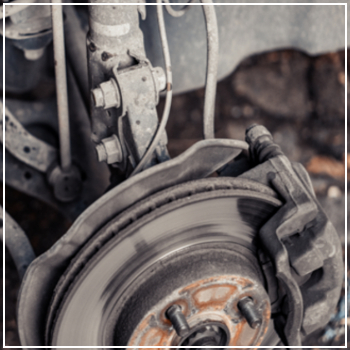It turns out that aftermarket brakes often fall short when it comes to reliability. Many shops recommend these parts to keep costs down, especially if they're working with insurers who prioritize low-cost repairs. Unfortunately, aftermarket brakes aren't just unreliable—they can also compromise your safety every single time you hit the road. At DaSilva’s Auto Body, we prioritize your safety above all else. That's why we exclusively use original equipment manufacturer (OEM) parts for every repair and replacement job—including brakes. Let’s take a closer look at what sets OEM brakes apart from their aftermarket counterparts. OEM brakes are crafted from pickled and oiled galvanized steel, a material known for its superior resistance to environmental factors. During production, galvanized steel undergoes a meticulous process where it’s submerged in acid to eliminate the oxide layer formed during manufacturing. It’s then coated with oil to minimize oxidation and extend its lifespan. This construction ensures better adhesion between the brake pad and the backing plate. When paired with the car's friction lining and rotors, this results in consistent braking performance. On the other hand, aftermarket brakes often rely on a cheaper alternative called “black steel.†Despite its silver coating, which makes it look similar to galvanized steel, black steel lacks the durability and safety features that OEM brakes provide. There are several reasons why black steel is inferior: Currently, no federal or state laws regulate aftermarket brakes like they do for OEM parts. To shed light on the risks, the Global Brake Safety Council conducted multiple studies comparing black steel to OEM brakes. Their findings were alarming: Installing aftermarket brakes may save money upfront, but it’s a gamble with your safety. For peace of mind, always opt for OEM parts. If you'd like to learn more about the differences between OEM and aftermarket components, feel free to reach out to us at DaSilva’s Auto Body in Naugatuck. We’d be happy to explain further and help you make informed decisions about your vehicle’s maintenance. Sulfur Autotrophic Denitrification Filter Material e Core Wire For Steelmaking,Core Wire For Casting,Export Sulfur Iron Cored Wire LUANCHUAN COUNTY HENGKAI METALLURGICAL MATERIALS SALES CO.,LTD , https://www.pyritechina.com Imagine this scenario: Your car's brakes start making an annoying squealing noise, or you notice you're having to press harder on the pedal to bring your vehicle to a stop. Naturally, you head to a local auto body shop hoping to resolve the issue quickly. The mechanic informs you that the brakes or rotors need replacing—no big deal, right? You pay up and assume you're good to go. But fast forward six months, and you're back in the same predicament—or worse, you're dealing with brake failure. Is your storage setup to blame? Or could it be something else entirely?
Imagine this scenario: Your car's brakes start making an annoying squealing noise, or you notice you're having to press harder on the pedal to bring your vehicle to a stop. Naturally, you head to a local auto body shop hoping to resolve the issue quickly. The mechanic informs you that the brakes or rotors need replacing—no big deal, right? You pay up and assume you're good to go. But fast forward six months, and you're back in the same predicament—or worse, you're dealing with brake failure. Is your storage setup to blame? Or could it be something else entirely?Why Aftermarket Brakes Might Be a Problem
What Makes OEM Brakes Superior?
The Risks of Using Aftermarket Brakes
Regulations and Standards for Aftermarket Brakes
How Dangerous Are Aftermarket Brakes?
